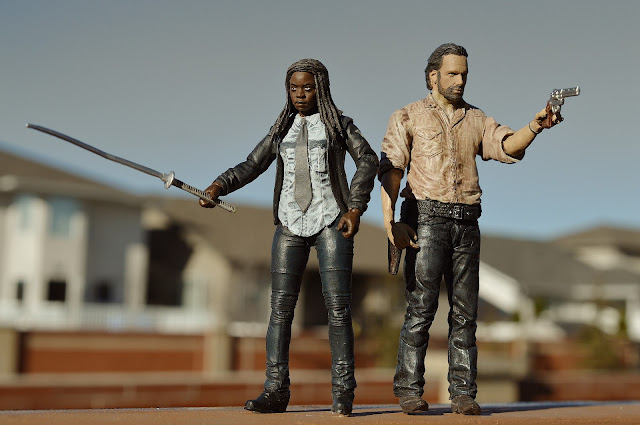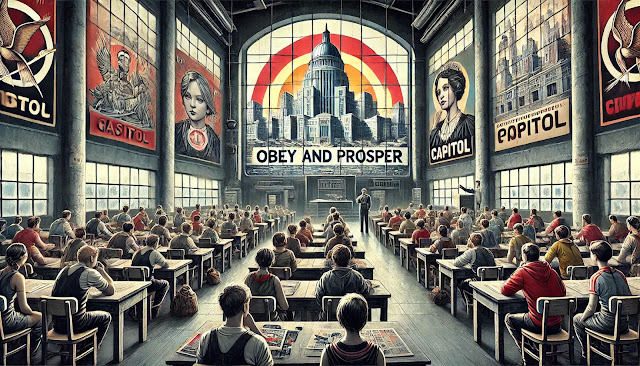Choosing to build a better world by education in the post-apocalyptic world of The Walking Dead
In AMC's popular television series of The Walking Dead, the world as we know it has ended. Some kind of virus has turned the dead into flesh-eating mindless creatures, and there are many more dead than living people. In this world, all the institutions have collapsed; there is no society, media, police, army, or any organized society outside small groups of people. Even though this is a fictional world, a somewhat similar collapse of civilization is possible due to climate change, epidemics, or major catastrophes. Therefore, it is interesting to ponder what the characters in The Walking Dead do and perhaps should do to restore society. In this post, I concentrate on organizing education.
The first days after the collapse are all about surviving. People start to teach each other practical survival skills (like fishing) and self-defense tactics when time passes. They have pretty organized shooting lessons, and they give each other advice on how to combat zombies. There is a heated debate on whether children should learn self-defense skills or remain children as long as possible. This debate goes so far that some people teach children self-defense skills in secret, believing that there will be no future for them unless they learn to defend themselves.
In addition to these practical skills, there is no education about history, arts, math, or anything we think is important to learn today. This seems reasonable in the short run. The world is so different that people do not need to know history, arts, etc., to survive. But in the long run surviving is not just physical. We should at least attempt to restore human wisdom, human-built societies, and human knowledge. One of the characters in the Walking Dead television series, Dale Horvath, reasons (in season 2) about morals and if it is needed in the new world: "The world we knew is gone, but keeping our humanity? That's a choice".
In the long run, when it is not just about immediate survival, it might be wise to ponder how to transfer the wisdom of the old world to the new. It would be wise to carefully deliberate what skills people can learn from each other and what skills people need to acquire in the long run. In other words, it is essential to think about the growth (and maintenance) of human capital in this new world. The surviving groups compete fiercely from scarce resources, and human capital plays an integral part.
In the world of The Walking Dead, people realize pretty soon that doctors are a great asset. Even a vet is much better than nothing when doing surgeries in elementary environments. All the people who can make weapons or bullets for the endless number of guns they seem to have are precious. Some doctors and weapon makers have apprentices who teach their skills in the series, but this is not very organized. In our society, education has two main functions. Firstly, it is an institution with a cohesive unifying role in society because education passes on the cultural property (values and common knowledge) to new generations. Secondly, it is an institution that renews society because the skills learned are updated to current situations. These functions are even more critical in the post-apocalyptic world.
These needs of education and teaching in a post-apocalyptic world are gathered in the figure below. At first, it is all about surviving to the next day (or even the moment). In this phase, people mainly share knowledge and help each other. People think a few days or even months ahead in the short run. People primarily use the apprentice system in the Walking Dead, but they could organize a better schooling system. It would be advisable that some people specialize in certain subjects and teach others what they know in the long run. These skills are about surviving decades and outperforming other hostile surviving groups. In my opinion, the next phase would be to restore the world to its condition today. By this, I mean building civilized societies that live in wealth and harmony despite the virus. However, our current community is clearly not the best of all possible. One of the most appealing ideas in post-apocalyptic stories is the idea of starting from the beginning, building new, better systems, and a better world.





Comments
Post a Comment